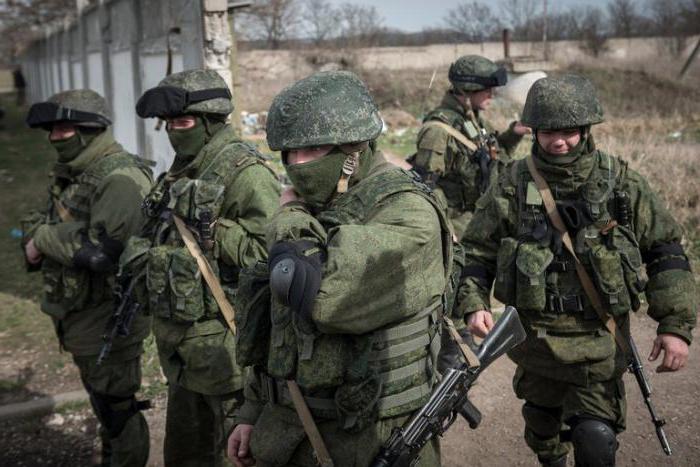An order or order is the last circumstance that precludes the crime of an act. Article 42 is currently regulated by the Criminal Law. The paragraphs of the article were supplemented and edited in 2017. This is a completely new rule for the laws of the Russian Federation.
It means that the execution of an order or order will not entail criminal liability, since the direct executor is not guilty of the deed. This gives a guarantee on the security of the subject executing the order, from a legal point of view, and also increases the degree of responsibility of superiors.
Polar views
The attribution of the order to an independent circumstance caused a lot of controversy among researchers. Some believed that the execution of the order excludes the corpus delicti, while others, on the contrary, suggested introducing this point into the Criminal Code.
It is not considered one of the types of coercion of a psychological nature. Thus, even if a crime was committed during the execution of an order, a person may not be subject to criminal prosecution. However, this rule is implemented only if all conditions are met. An example is the situation when the rector gave the order not to accept the threat of dismissal of residents of the Caucasus and Central Asia to the university.
Until 1993, Russian law provided for criminal liability for the executor of an order, which entailed consequences of a criminal nature.
Execution
The main provisions of Article 42 of the Criminal Code of the Russian Federation are:
- A crime is not considered an act that has caused harm to the interests protected by law, which was committed by a person acting in accordance with a binding order or order. The person who issued the order, as a result of which the damage was caused, is subject to criminal prosecution. Thus, Article 42 for the first time formulated the execution of an order or order as one of the clauses of general criminal law.
- If the crime was committed by a person to whom an unlawful order was given intentionally, realizing the harmful consequences, then it is criminally punishable. If the obviously criminal order is not executed by the addressee, criminal liability for the latter is excluded.
Before the article was introduced into the Criminal Code, there was the concept of the execution of a court order with respect to the same higher authorities that touched on the issue of qualification of the implemented order in several types of cases (for example, cases of postscript to state-scale reporting). This allowed lawmakers to generalize the resulting judicial practice and formalize it in the norm of the general part of the Criminal Code.
Management method
Society cannot function normally without being controlled by orders and other methods. Order relations are present in all spheres of human life, where there is a need to manage activities. For example, enforcement by a bailiff concerns many entities.
On the issue of management, there is a certain hierarchy of those who exercise the right to certain actions, and those who execute higher decisions. The relationship between these two categories of people is called the interaction of power and subordination, which is based on order.
What to do?
Administrative law in most cases governs administrative relations. However, sometimes situations arise in which this area of law is powerless.For example, it is quite difficult to assess the actions of a person who, by law, has executed an order that does not provide for refusal, but its execution has hurt relations that are protected by law. The question is how to qualify the extremeness of circumstances and determine that a particular order was criminal.
Who is guilty?
These issues relate to the field of criminal law and should be resolved within the framework of legal norms relating to the execution of an order or order and excluding the crime of an act committed. It is especially important that sometimes the exclusion of the contractor’s liability for damage caused as a result of the implementation of the order may be considered in case of unconsciousness of the actions taken or the illegality of the order given. The responsibility of the contractor has general grounds according to which a response is possible for the implementation of any type of criminal action.

Guilt, therefore, acts as a necessary element of the corpus delicti and remains important for those who commit dangerous acts in order to execute a criminal order. However, the Criminal Code qualifies such actions as a lack of corpus delicti on the part of the executor of the order and order, that is, as a lack of guilt.
Definition of concepts
An order or order can be defined as an imperative demand, the basis for which is a law or by-laws, which calls for any action to be taken. Control over the execution of the order is carried out by an authorized person. Oral and written orders are used in the military sphere, while in civil service only orders can be applied.
Orders are considered valid until they are completed, the deadline for the execution of the order or cancellation. An order or order is not necessarily given to persons who are directly subordinate. The state inspector, for example, can give orders to drivers, and sanitary doctors - to citizens. The form of the order may be either written or oral, or may take the form of gestures. Orders can be qualified and simple. The time to execute an order, as a rule, varies depending on the nature and meaning of the order.
Absolute legitimacy
Practical management activities and applicable laws are based on the presumption of the legality of all orders and orders of superiors and their mandatory execution by persons under subordination. However, there are limits to which the order or instruction of the chief is considered strictly binding. Control over the execution of the order is carried out by an authorized person.
Historical excursion
In the seventeenth century, T. Hobbes published the theory of irresponsible and blind submission to the order of the chief, when the subordinate acted as a tool for the manager and was deprived of the ability to perform any action of his own free will. These postulates are subject to harsh criticism from modern lawyers. It is believed that the subordinate has free will, and therefore, is able to assess the legitimacy of the order or order received and decide whether to execute it or not.
Types of Orders
The criminal liability provided for subordinates for causing harm in the process of executing a given order is determined individually for each individual case. It all depends on how the court qualifies the order or order, which are divided into three types:
- Legitimate orders. This is an order given to the subordinate in the established form and without contradiction to the letter of the law, which falls within the competence of the boss.
- Illegal orders. Violate the above conditions. This means that such an order was issued by an unauthorized person, or the form and sequence of issuing the order was violated.Perhaps it contained illegal requirements that were aimed at violating rights and norms.
- Criminal order. Refers to one of the varieties of an illegal order and pushes to commit acts that are criminalized by criminal law. As a rule, such orders are aimed at causing harm to the health, property and rights of citizens, as well as to public and state interests.
The limits of the mandatory implementation of orders
In criminal law, there are different points of view on the boundaries of the obligation to execute orders and orders in the field of civil and military service. The military's boundaries of obedience were considered more stringent, so the execution of an obviously criminal order could cause criminal liability for the performer.
The amendments to the Criminal Code made the responsibility for the execution of the order by civilians and military equal. To date, a person who has carried out a binding order that led to harm to the interests protected by criminal law, regardless of his position, profession and legal status, is not subject to criminal prosecution. Responsibility for such actions will be borne by the person who issued the illegal order or order. He will be recognized by the court as the perpetrator of the criminal act.
If a person executes a deliberately unlawful order, which leads to the commission of a deliberate crime, this will be considered as an excuse for criminal liability on a basis common to all. In this situation, the presence of an order will qualify as a mitigating punishment circumstance.
The statute of the Nuremberg Tribunal stated that the actions of the defendants, by order of the superior or the government, should not exempt them from liability. However, the executor of the order will not be subjected to criminal prosecution if he did not realize the illegality of the order given to him.
Anyone who issued an order or an order of a criminal nature cannot escape criminal liability either. His actions are assessed by the court as incitement or organization of criminal acts. This is due to the fact that the issuance of an order or order qualifies as inducing the performer to commit a crime. The actions of the superior are also considered under article 286 of the Criminal Code. If the contractor refuses to comply with a deliberately criminal order, the leader is criminally liable for preparing for the crime under article 34 of the Criminal Code.
Are both to blame?
If the order prescribes the fulfillment of a task without describing the ways to solve it, then there are two possible scenarios that could lead to harm to the interests of rights and laws. If the only way to solve the problem is through deliberate criminal acts, then the responsibility lies with both the leader and the subordinate.
If the problem can be solved legally or criminally, and the contractor consciously chooses the last option, then only he will be responsible. The responsibility of the subordinate in case of exceeding the powers prescribed in the order is also determined.
Contrary to the fact that the Criminal Code assumes responsibility for failure to fulfill an order by military personnel, in the event of a deliberately criminal order, an answer to the law is excluded. Whom does this concern? Especially those civilians who refuse to execute an order that could lead to a violation of the law.
In the field of economic activity, there are also orders. For example, an order on temporary performance of duties of an employee who is absent for any reason. This phenomenon is widespread in practice.